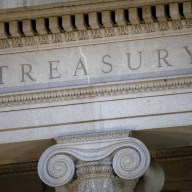 Pope Benedict XVI sits on a garden bench during his annual holiday in Bressanone, northern Italy July 31, 2008.
Pope Benedict XVI sits on a garden bench during his annual holiday in Bressanone, northern Italy July 31, 2008.
Credit: Reuters
The Vatileaks scandal, which saw Pope Benedict’s former butler leak confidential documents, left the pontiff “isolated and may have been a factor in his resignation”, a Vatican observer tells Metro.
Q&A with Elena Curti, deputy editor of Catholic international weekly “The Tablet.”
Metro: Has Pope Benedict’s resignation come as a shock to Catholics?
Curti: The timing has been a surprise. While Benedict did indicate in the past that he would step aside if he felt he was unable to continue, the Catholic world has been astonished by this news.
As the years went by, the Pope did grow weaker both physically and mentally. But the Vatileaks scandal, which saw Benedict’s ex-butler Paolo Gabriele steal thousands of Vatican documents, some of which alleged corruption within the church, might have been a factor in his resignation. Knowing that one of his closest aides had betrayed him must have left him very isolated and powerless. The Pope must have felt that power was slipping away from him, his power to govern.
Who can replace him?
The field is wide open. However, in normal circumstances, the Pope dies and the church has more time to reflect, organize the papal conclave and start the debate for a successor. Now, there is much less time for that. It will be very difficult to predict who will be the next leader. After the Pope resigns on February 28, the Dean of the College of Cardinals Angelo Sodano will be in charge to organize the election of the next pontiff.
Do you think Benedict is aware of the cataclysmic effect his resignation has left?
I think his move was quite characteristic of Benedict. He has always been bold in his decision-making. He brought back the old Latin mass and set up the Ordinariate, a place within the Catholic Church for former Anglicans worldwide.
The Church faces many challenges ahead, following a number of sex abuse scandals and congregation numbers dropping. What direction will it now take?
The Church can either work towards a smaller yet purer church or continue its policy of evangelization, spreading the gospel. I believe the new pope will do both. There is much talk of the falling numbers of churchgoers in the Western world, but elsewhere in the world, particularly in Africa, the numbers are growing very, very rapidly. This could be a shift away from a European-centric church.
Do you reckon Benedict was just a “caretaker pope” following the 26 years+ reign of John Paul II?
There are elements of that, certainly: he was elected pope at age 78, already the oldest pope elected in nearly 300 years, so he never had a lot of time to lead. Admittedly, he was not a very good administrator and failed to get grip of the Roman Curia, the church’s central administration. But nevertheless, he never shied away from a ground-breaking decision.














